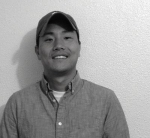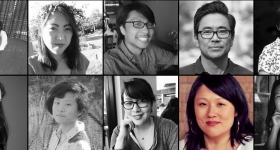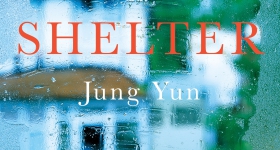When you found me, it was already too late. I was almost eight and my memory had been erased and reprogrammed through years of loving indoctrination. I was, as the first of many reports had said, “adjusting well and learning English quickly.” On the way to the meeting, you tried to explain that my Korean mother had been looking for me for many years. “Was I lost?” I asked. But you only smiled slightly, squeezed my hand, and started the car.
As we drove downtown, you kept looking at me in the rearview mirror. But you didn’t say anything. When we got to the building, you parked, and we sat in the car, your hands still gripping the steering wheel. “Are you okay?” I asked, and you smiled briefly at me through the rearview mirror.
We got out and, to my surprise, you picked me up, said, “Let’s go,” and carried me inside. We were greeted by two older women who each smiled. “Thirsty?” one woman asked, offering a bottle of water. “Are you ready to meet your mother?” the other one asked, opening the door. I nodded, and you put me down, took my hand, guided me into the room.
She was standing when we entered, and you squeezed my hand before you let go. She immediately walked over to me, knelt down, and began speaking. A man stood behind her with his hands in his pockets. He was dressed nicely. I couldn’t understand what she said, the words flowing out of her so quickly. But then the man said, “She’s so happy to see you.” It felt strange when she hugged me, held my hand, then began crying. I looked at you and thought about when you bought me new shoes and ice cream.
We all sat down on opposite sofas, a small coffee table between us. “This man is the translator,” said the one woman who opened the door. He sat with my mother and seemed to nod his head whenever she stopped speaking Korean. Then he closed his eyes for a moment before turning to you and speaking English. As people took turns speaking, he sat in silence. He looked bored to me and kept looking at his watch. I listened carefully to her but had to look at him because of the words he used.
Then she gave me little colorful, doughy cakes, said what sounded like the word “duck,” and I remembered when we had fed stale bread to the ducks at the cemetery when we visited grandma. It tasted funny to me, but I liked it. And the man who could understand both mothers smiled. My Korean mother reminded me of a woman I saw on TV one day, and I noticed the room was very small and warm and dark. “It’s like Stockholm syndrome,” the man said to no one in particular.
When she cried again, you didn’t seem to know what to do with your hands. She looked at you, then at me. You leaned over the table and handed her a tissue, touched her hand. And she looked at you for what seemed a very long time. She said something that the man did not translate right away. But then he turned to you, said, “She’s very thankful to you.” Then she leaned forward, took my hand and began speaking rapidly again.
The man said she blamed him — my father — blamed society, country, herself. When she slapped her knee, he said, “I should never have let you go.” When she closed her eyes, he said, “I want you to meet your brother and sister someday.” When she opened them, he said, and this is when he paused momentarily and seemed to look only at me. “She says she’s sorry,” then he said this very slowly, as if it took him some time to locate the right words, “she lost you.”
This piece was published as part of the November Adoptee Literature Folio. To see other works from the folio, please visit the table of contents here.
***
Mori Walts is a queer Nikkei multimedia artist based out of Santa Rosa, CA, who is currently focusing their art on processing the imaginary Japan within the western imagination. They hope to pursue a career in animation.










Comments